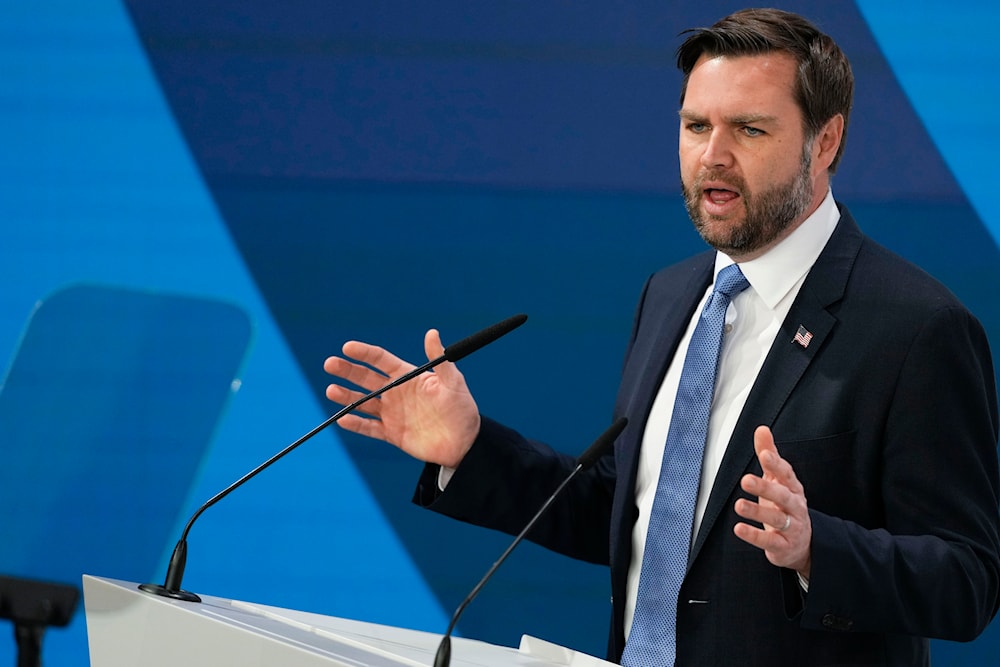Turmoil hits Germany's last week of elections after JD Vance's remarks
JD Vance's calls not to exclude the far-right took over the TV debates, with most party leaders standing against it, except for the AfD's Alice Weidel who echoed Vance's remarks.
-

United States Vice-President JD Vance addresses the audience during the Munich Security Conference, February 14, 2025 (AP)
The German Federal Elections debates are becoming more heated and intense as the elections enter their final week, with controversy surrounding the far-right for alleged US interference in their favor, following US Vice President JD Vance's comments at the Munich Security Conference.
Vance said Germany should abandon the taboo of associating with the far-right and having far-right parties in the government, adding that there was "no room for firewalls," prompting thousands of demonstrators to take to the streets of Berlin on Sunday.
The US vice president's remarks became the main talking point in the last televised debate between the top candidates: Friedrich Merz, Olaf Sholz, Robert Habeck, and Alice Weidel, with Merz, whose party is currently leading the polls at around 30 percent, saying, "I will not allow an American vice president to tell me who I can talk to here in Germany."
Current Chancellor Olaf Scholz echoed Merz's sentiment, saying that Vance's comments are unacceptable and there is "no cooperation with the extreme right."
On the other hand, the leader of the Alternative for Germany (AfD) Alice Weidel echoed Vance's remarks from the Munich conference, saying, "We must not build firewalls to exclude millions of voters from the outset – we have to talk to each other. He made that clear."
The rise of the AFD
The Alternative for Germany (Alternative für Deutschland, AFD) is a far-right right-wing populist party in Germany that garnered more popularity after Chancellor Olaf Scholz's center-left government grappled with a series of crises.
The anti-immigration party has seen a rise in its poll results in recent months, as it is expected to register a record-breaking score of 20%. The party won the elections in the state of Thuringia, its first win in a state parliament election since WWII.
The AfD has proposed several controversial policies on matters like migration and education, with the party introducing the concept of "re-migration", a term that is associated with far-right and surrounded with controversy after reports of its use in a secret meeting between right-wing extremists, neo-Nazis, and AfD officials.
Previously, Steffen Kotre, one of the party's lawmakers, promised to end the policies of the current coalition ruling Germany, claiming that these policies hurt Germany's prosperity and stating, "The traffic light government symbolizes the destruction of Germany's prosperity, foreign intrusion into the lives of the German people, and a lack of trust in politics. The AfD will put an end to all of this."
Chancellor Scholz responded to the results by saying, "The AfD is damaging Germany. It is weakening the economy, dividing society, and ruining our country's reputation," while calling on mainstream parties to form state governments that exclude the far-right.

 3 Min Read
3 Min Read










